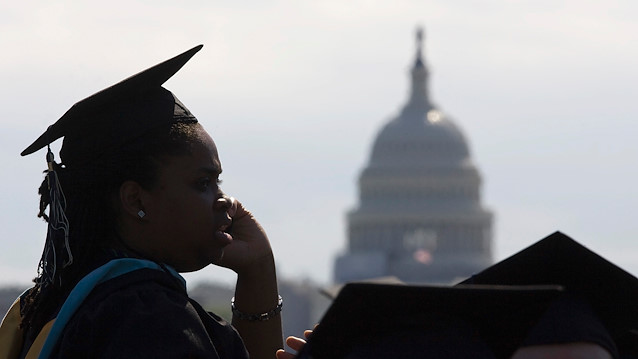

File photo
American colleges, kingdom ties created to ease tensions, news organization says
Some universities and colleges in the U.S. are rethinking funding they receive from Saudi Arabia in light of the killing of journalist Jamal Khashoggi, The Associated Press (AP) reported Tuesday.
Through the decade, the Saudi government has funneled $354 million into 37 different schools across the U.S.
The top two recipients, George Washington University and George Mason University, received a large portion through a Saudi scholarship program which sends students to study in the U.S. every year.
The AP found at least $62 million came from grants and gifts given to schools by Saudi nationally-owned enterprises.
Massachusetts Institute of Technology (MIT) and Texas AM University both received millions of dollars from the state oil company, Saudi Aramco.
"Although some of the contracts halted before last year, questions surrounding Saudi writer Jamal Khashoggi’s death at the Saudi Consulate in Istanbul have spurred some schools to reconsider current or future deals," the AP wrote.
MIT announced it would reassess its partnership with the kingdom because of the "grave concern" about Khashoggi, and told faculty work with the Saudis to “make their own determinations as to the best path forward.”
Earlier this year, the oil company pledged $25 million to MIT for research on renewable energy and artificial intelligence, according to the AP.
Khashoggi, a Saudi journalist and columnist for The Washington Post, went missing after entering the Saudi Consulate in Istanbul on Oct. 2.
After weeks of denying any knowledge of his whereabouts, Saudi officials admitted that Khashoggi was killed in a fist fight inside the consulate building.
Turkish President Recep Tayyip Erdoğan said 18 people arrested in Saudi Arabia for the killing should be extradited to Turkey to face trial, while Saudi Foreign Minister Adel al-Jubeir said the kingdom would try the suspects after an investigation is complete.
Even after this, many schools are not considering a reassessment of Saudi funds, including George Mason University, University of California-Berkely, Northwestern University, and Tufts University.
“Refusing payment would result in us denying an educational opportunity to otherwise qualified students. This would run counter to our mission of serving students,” George Mason spokesman Michael Sandler said in a statement.
The Saudi scholarship fund was initially created in 2005 to create warmer relations with the U.S. after the Sept. 11 attacks.
"In some ways, the ties between American colleges and the kingdom were created to ease tensions between the nations," the AP wrote.
#Aramco
#funding
#Khashoggi
#Saudi
#scholarship
#schools
#University



